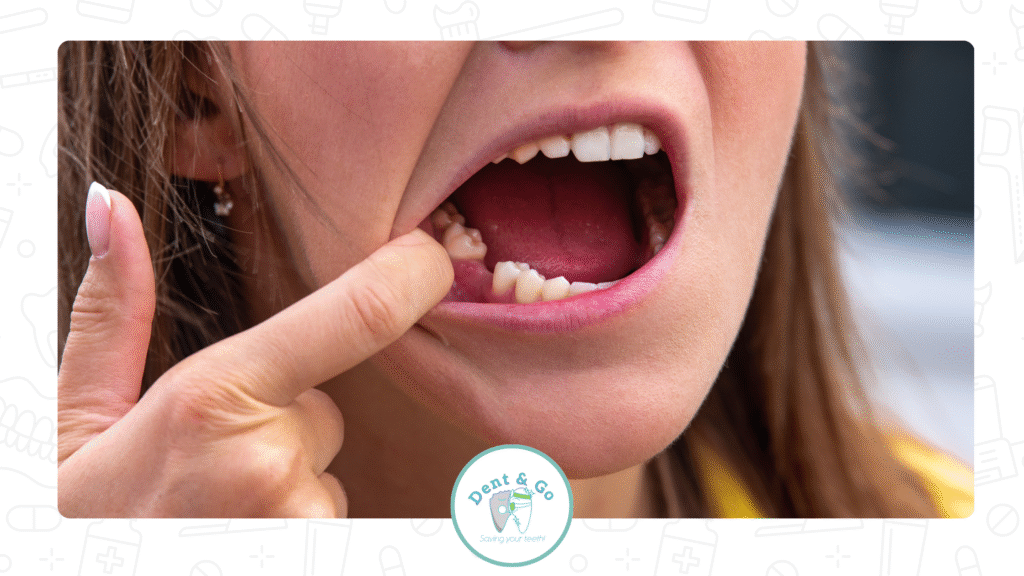We’ve all grown up hearing how important it is to brush our teeth twice a day. But what if I told you that brushing too hard or using the wrong technique could actually be damaging your teeth?
It sounds a bit ironic, doesn’t it? You’re trying to do the right thing for your oral health, but without realising it, you might be slowly wearing away your tooth enamel something dentists call tooth abrasion.
Tooth abrasion happens when the outer layer of your tooth, the enamel, gets worn down due to mechanical actions, like aggressive brushing, abrasive toothpaste, or even biting your nails. Unlike tooth decay, which is caused by bacteria, abrasion is purely physical. And unfortunately, enamel doesn’t grow back.
If caught early, tooth abrasion can be managed. But to deal with it, you first need to recognise the signs. Here are three common symptoms of tooth abrasion to look out for especially if you think your oral routine is spot on.
1. Small Notches or Grooves Near the Gum Line
One of the first visible signs of tooth abrasion is a notch or groove at the base of your tooth, right where the tooth meets the gum. These notches often show up on the front teeth or canines, and they might look like little scooped-out areas.
They may seem harmless at first just a cosmetic issue, maybe but they’re often a sign that your enamel is slowly being worn away. This can eventually lead to sensitivity, pain, or even decay if left untreated.
If you notice any changes in the shape of your teeth near the gums, especially if they feel rough or uneven, it’s worth getting them checked out.
2. Tooth Sensitivity That Comes and Goes
Ever felt a quick, sharp sting when drinking something cold or hot? Or a little jolt when brushing in a certain spot? Tooth sensitivity is one of the most common complaints among people with enamel erosion caused by abrasion.
When the enamel thins out, the dentin layer underneath becomes exposed. This dentin contains microscopic tubules that lead directly to the nerve endings inside the tooth. So when you eat or drink something cold, hot, sweet, or even acidic, the sensation travels through those tubules, straight to your nerves causing that familiar zing.
This isn’t just a theory. A study published on PubMed explains:
“Evidence suggests that patients suffer the painful symptoms of dentine hypersensitivity when dentine is exposed and the dentinal tubule system is opened to the oral cavity to allow stimuli to trigger a neural response in the pulp via a hydrodynamic mechanism.” [PubMed (Bartold, 2006)]
In simple terms, this means that when those dentinal tubules are exposed often due to over brushing or enamel wear your teeth react to everyday sensations in a much stronger way. So, if you’re finding yourself wincing while brushing, or reacting to temperature changes more than usual, it’s a good idea to have a dentist check for signs of abrasion-related enamel loss
3. Teeth That Look Longer (Or Gums That Look Lower)
Have you ever looked in the mirror and thought your teeth looked… longer than usual? It might not be your imagination.
While it’s easy to blame gum recession, sometimes what’s really happening is tooth structure being worn away, especially near the gum line. This creates the illusion that your gums are shrinking, when in fact your enamel is simply eroding.
This can make your smile look uneven, and in more severe cases, it can even affect the strength and function of your teeth.
What Should You Do If You Notice These Signs?
The good news is, tooth abrasion is treatable, especially if you catch it early. Here are a few things you can do right away:
– Switch to a soft-bristled toothbrush and brush gently in circular motions
– Avoid toothpaste that’s too gritty or “whitening” unless recommended by your dentist
– Break habits like nail biting, chewing on pens, or brushing too soon after acidic meals
– Visit your dentist regularly and mention any new sensitivity or changes in your teeth
In some cases, your dentist may recommend fluoride treatments, bonding, or other restorative options to protect the affected areas.
A Gentle Routine is a Healthy Routine
Tooth abrasion often sneaks up on us, especially when we’re trying to be diligent with our oral care. But brushing harder doesn’t mean brushing better.
If you’ve noticed grooves near your gums, sudden sensitivity, or your teeth looking a bit longer than they used to, it might be time to reassess your brushing habits and speak to your dentist.
Taking a gentler approach could be the best thing you ever do for your smile.

